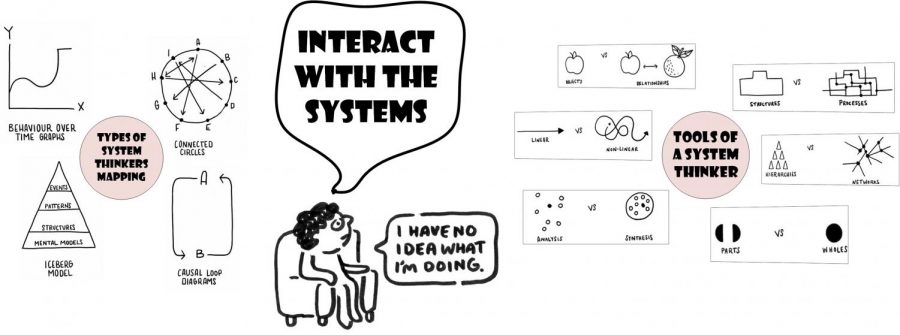Imposter syndrome just a mental model
Process to achieve goals is most important part of success
Our success, or lack thereof, is a direct result of us interacting with systems. You may be too focused on your success, and not enough on what helped get you there.
September 13, 2021
People experiencing imposter syndrome are the oneswho can actually see more tangible outcomes from their hard work – like money, social status, awards or recognition.
It does not seem to be the lack of outcome or achievement that makes you feel like an imposter; it is the obliviousness of how you got to where you are.
Whether you are a medical student at one of the top universities in the country, the first man who walked on the moon, a software developer at Amazon, a famous actor, a computer science major in the middle of earning your master’s degree, or even Michelle Obama – seeing your success become tangible can make you question how you got to where you are.
Going to one of the top medical schools in the country (the success) did not stop Deepika Kubsad – second-year medical student at University of Washington – from feeling like an imposter.
“My past experiences [internships at the World Health Organization, publishing in top medical journals] positively shapes my current actions at medical school and this helped me realize that maybe, just maybe, I had achieved this success for a reason,” she said.
A specific series of interconnected and interdependent events transpired that led to where you, and the rest of us, are today.
You may be too focused on the unique qualities that have led to your success and not enough on how your interactions with “systems” helped get you there.
A system is an interconnected set of elements that is coherently organized in a way that achieves something. Everything in this world – your favorite soccer team, the city you live in, the functions of your body – are all different systems.
A system should comprise three parts: elements that make up the system, the interconnections between them and its purpose. Any system is more than just the sum of its parts because of its dynamic and evolutionary behavior.
One actor’s success evolves as they get more parts and earn more recognition. Another actor might see success after three awards and only one part in a movie. The idea of success evolves and is redefined with each person’s experiences and personal trajectory.
Despite the uncertainties in the system evolution, if you step far enough back from your success to perceive the relationships between its elements – how each event led to the next – it will likely make sense.
“Instead of questioning my abilities every time I am faced with a difficult research question, which is my default route, focusing on the routine I created to deal with the problem greatly reduces the feelings of inadequacy to deal with the question at hand,” said Aakanksha Raika, WSU second-year computer science master’s student.
Success – by traditional measures – happens when we interact with the system in a way that produces an outcome we desire. Learning to interact intelligently with the system you are a part of could put you on your success trajectory.
“The efforts that I took to get my first developer job was not very obvious until I started coaching people in getting their first programming jobs,” said Harshita Jasthi, Amazon Web Services software developer.
Breaking down her trajectory into building blocks helped her recognize the path she took and the success sheearned.
Whether it be your undergraduate or graduate degree plan, the transition to a better position in your job, or your workout plan to compete in another marathon, the path that you took to get there is the best part of every goal.
If we focus more on how we got to where we are, we will not feel like such frauds for reaching our goals. We did the hard work. We should enjoy what comes from that!
At the end of the day, no one is superhuman. Understanding the interconnected web of events that led to where you are today will go a long way toward recognizing the success you have achieved and earned.
It can even reveal how to keep it up.










